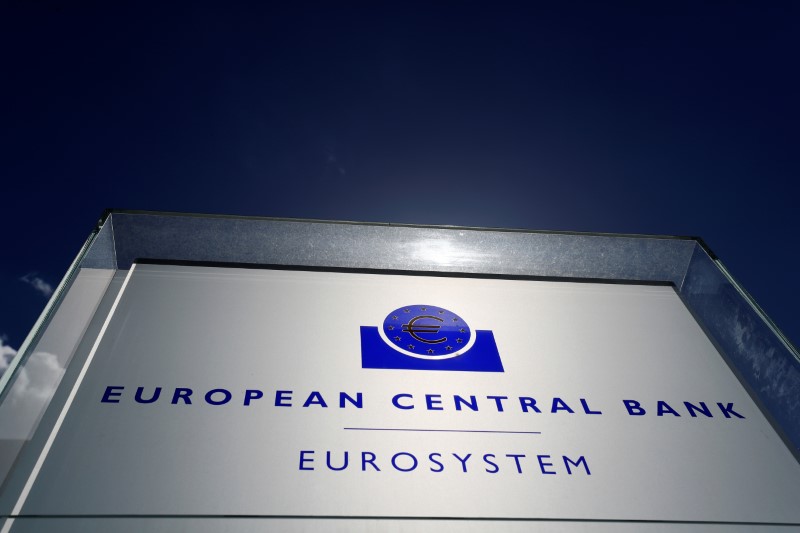 © Reuters. The logo of the European Central Bank (ECB) is pictured outside its headquarters in Frankfurt
© Reuters. The logo of the European Central Bank (ECB) is pictured outside its headquarters in FrankfurtFRANKFURT (Reuters) – Private consumption in the euro zone has further room to grow, likely driving economic expansion even as external headwinds multiply, the European Central Bank said in an economic bulletin on Wednesday.
Euro zone growth has slowed sharply over the past two quarters, raising fears that the bloc’s remarkable expansion, now into its sixth year, may be coming to a premature end.
But the ECB has long argued that the slowdown is due almost entirely to external factors and that domestic demand remains strong and jobs creation appears to be holding up.
“Private consumption has been the main driver of the recent economic expansion, but there is still scope for further growth,” the ECB said. “As labor markets continue to improve, consumer confidence should remain elevated and private consumption should rise further.”
The slowdown comes at a particularly sensitive time for the ECB as it dials back stimulus. It plans to end its 2.6 trillion euro bond purchase scheme by the close of the year, in the hope the economic recovery is strong enough to continue with more modest central bank support.
Employment in the euro zone at over 107 million is record high but unemployment at 8.3 percent is still one full percentage point above the euro zone’s pre-crisis mark.
In its bulletin, the ECB argued that recovery in private consumption has so far been weak, particularly for lower income families, whose consumption levels have yet to recover to their pre-crisis level.
Households in the poorest and least educated segments of society, which are now among the main beneficiaries of employment growth, are also more likely to consume non essential items, the ECB said.
“Losses from the financial crisis have not been recouped everywhere,” the ECB said. “Private consumption in Germany and France stands about 10 percent higher than before (the recession) but by contrast, consumption in Italy and Spain has not yet recovered completely.”
Defending its monetary policy against criticism that low rates inflate bubbles, the ECB added that the muted rise in credit growth does not indicate that the consumption boom is fueled by cheap credit.
“There is little evidence that low interest rates have led to generalized increases in household indebtedness, supporting the view that the overall economic expansion is sustainable,” it added.
Fusion Media or anyone involved with Fusion Media will not accept any liability for loss or damage as a result of reliance on the information including data, quotes, charts and buy/sell signals contained within this website. Please be fully informed regarding the risks and costs associated with trading the financial markets, it is one of the riskiest investment forms possible.
Source: Investing.com




























